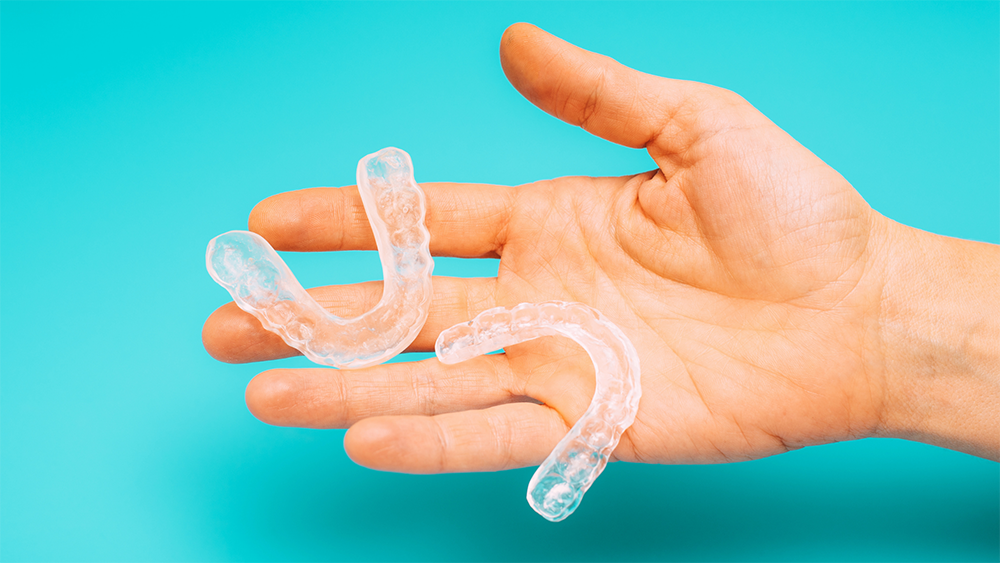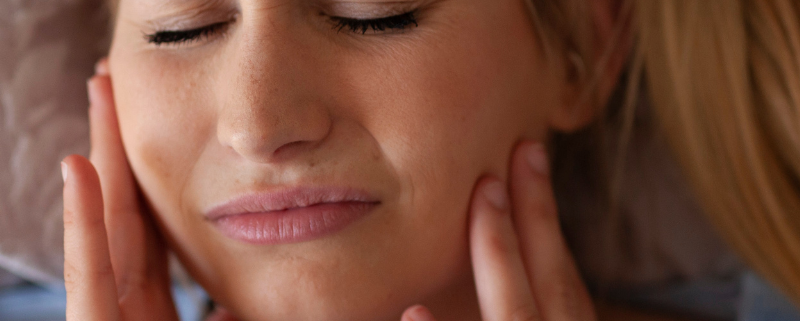Nocturnal Bruxism
Did you know that roughly 8% of American adults grind their teeth at night in their sleep? In this blog, we will break down the symptoms, and treatment options available for Nocturnal Bruxism.
SYMPTOMS
Symptoms indicating this are having sleep-partners tell you that you grind your teeth, and/or you may wake up with sore teeth, or sore jaw muscles. Often, people will notice more nighttime activity during periods of increased stress.
This will often lead to patterns of wear on the teeth where the teeth can wear down rapidly. This is often linked to TMD which stands for temporal mandibular dysfunction. This is often miss reported as TMJ, which stands for temporal mandibular joint which is an anatomical term. TMD is soreness in the muscles of the jaw and face (which move the jaw).
Left unmanaged, nocturnal bruxism can lead to a number of different issues. It can lead to pain in the muscles used to chew (side of face and temples). Sometimes, other more odd symptoms can occur such as tinnitus (ringing in the ears). If left unchecked, we’ve seen severe enough wear from Nocturnal Bruxism that is has led to a need for full mouth dental reconstruction with a mouth full of crowns.
TREATMENT
There are some medications, such as L-dopa that are implicated in initiation of teeth grinding, but we don’t seem to have any drugs that stop the grinding itself at this point in time.
Treatment mostly consists of protection of the teeth and discomfort management. We construct and professionally adjust hard acrylic night guards. They snap on to the upper arch of teeth and are fully adjusted to meet the lower teeth. These are smooth to allow sliding of the lower teeth against it.
If you are dealing with NB and are looking for more information or assistance, call and schedule an appointment today with Eric Yaremko Dentistry by calling (360) 734-6620. We encourage you to follow us on social media @ericyaremkodmd on Instagram and Facebook for more useful dental information. See you there!




